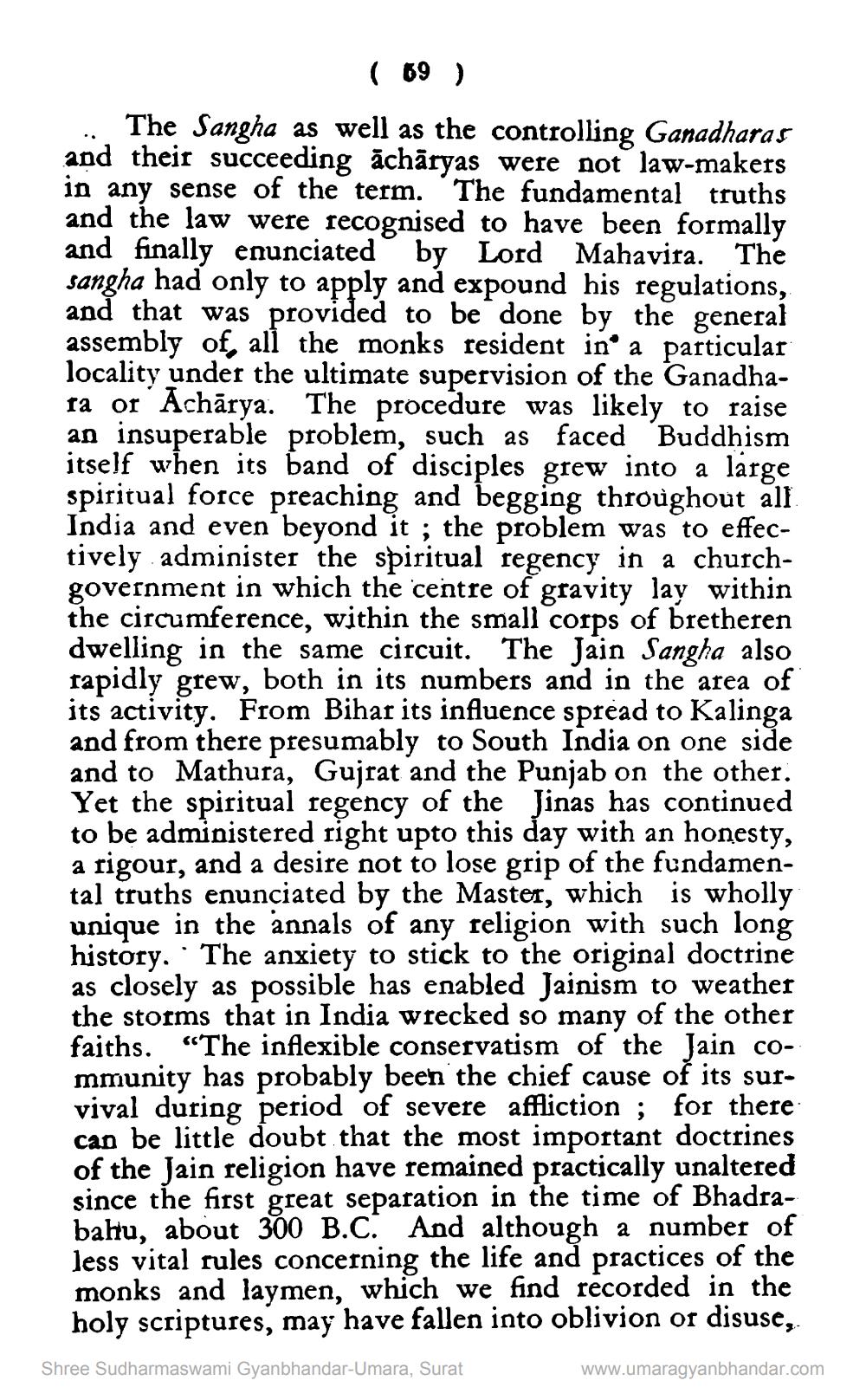________________
( 69 )
The Sangha as well as the controlling Ganadharas and their succeeding acharyas were not law-makers in any sense of the term. The fundamental truths and the law were recognised to have been formally and finally enunciated by Lord Mahavira. The sangha had only to apply and expound his regulations, and that was provided to be done by the general assembly of all the monks resident in a particular locality under the ultimate supervision of the Ganadhara or Acharya. The procedure was likely to raise an insuperable problem, such as faced Buddhism itself when its band of disciples grew into a large spiritual force preaching and begging throughout all India and even beyond it; the problem was to effectively administer the spiritual regency in a churchgovernment in which the centre of gravity lay within the circumference, within the small corps of bretheren dwelling in the same circuit. The Jain Sangha also rapidly grew, both in its numbers and in the area of its activity. From Bihar its influence spread to Kalinga and from there presumably to South India on one side and to Mathura, Gujrat and the Punjab on the other. Yet the spiritual regency of the Jinas has continued to be administered right upto this day with an honesty, a rigour, and a desire not to lose grip of the fundamental truths enunciated by the Master, which is wholly unique in the annals of any religion with such long history. The anxiety to stick to the original doctrine as closely as possible has enabled Jainism to weather the storms that in India wrecked so many of the other faiths. "The inflexible conservatism of the Jain community has probably been the chief cause of its survival during period of severe affliction; for there can be little doubt that the most important doctrines of the Jain religion have remained practically unaltered since the first great separation in the time of Bhadrabahu, about 300 B.C. And although a number of less vital rules concerning the life and practices of the monks and laymen, which we find recorded in the holy scriptures, may have fallen into oblivion or disuse,
Shree Sudharmaswami Gyanbhandar-Umara, Surat
www.umaragyanbhandar.com




